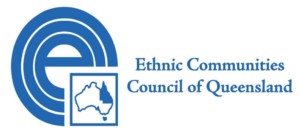
How well does your service work with multicultural communities? Do you know what proportion of your client group is culturally and linguistically diverse?
With approximately 29% of Queenslanders now being either overseas-born or having at least one parent who is, now is a great time to think about how your organisation welcomes its multicultural clients. Cultural practices, beliefs and behaviours can have profound impacts on both physical and psychological health and wellbeing.
Data from Australian Bureau of Statistics (ABS) shows that people from culturally and linguistically diverse background have considerably lower levels of health literacy compared with the general population.
There are many reasons for this, such as:
- lower English language proficiency
- lack of familiarity with health and care system in Australia
- cultural differences in beliefs about health and aged care
- expectations of medical professionals and care services
The impact of low health literacy on culturally and linguistically diverse population means they are:
- less likely to understand their rights and issues impacting health and care needs
- more likely to experience social isolation and at risk
While a person may speak conversational English, at times this is not enough to meet the demands of a clinical interaction. People often overstate their language skills due to embarrassment and fear of stigma. Effective communication is essential for the provision of safe, high-quality care – it is linked to reduced errors, improved health outcomes and client satisfaction. Conversely, ineffective communication can result in limited, delayed, inefficient care, leading to more costly treatment and intervention.
Research* has highlighted the lack of access to and underuse of interpreters and culturally appropriate resources for migrant and refugee populations. Care and health service organisations have a duty of care to communicate effectively, in particular when obtaining informed consent. Organising translations or culturally appropriate resources enhance trust and consolidate safe communication. Communication is one of the seven rights in the Australian Charter of Healthcare Rights.
You can work with us to provide cultural diversity and communication training for your staff to enable better understanding of cultural differences, which helps to reduce multicultural people’s barriers to accessing care and health services.
The differences that exist within culturally and linguistically diverse communities are often not considered by our health system, which can lead to inappropriate care. Those affected can become isolated from the system and have poorer health outcomes than the broader population.
What we do in MAS:
- Our team works with our multicultural communities to promote good health, staying at home longer in aged care support, equitable access to services and engagement and the development of health literacy in our culturally and linguistically diverse communities.
- We hold open sessions and undertake targeted cultural awareness work with service providers to ensure care services and health professionals deliver culturally responsive and equitable services and address cultural and linguistic barriers to quality inclusive care.
- We have a library of cultural resources
- We participate in community engagement forums
- We develop our data on CALD populations to better inform service providers
- We offer cultural diversity training for staff and promote a culturally diverse workforce
- We commission healthy ageing education and care navigation services for culturally and linguistically diverse older people and their carers
- We partner in with First Nations leaders to provide support in cultural awareness about Aboriginal and Torres Strait Islander cultures
Call us today!
*Source: Australian Commission on Safety and Quality in Health Care, 2021




